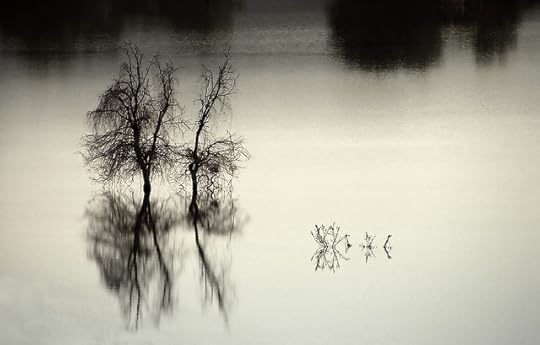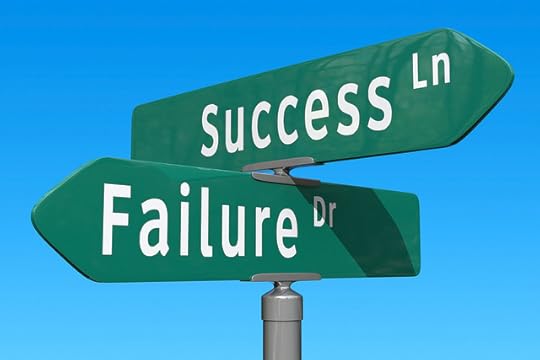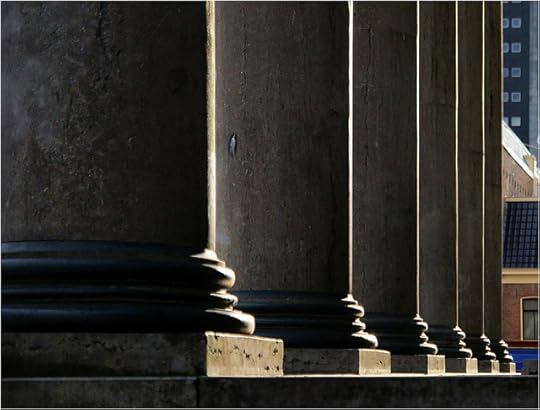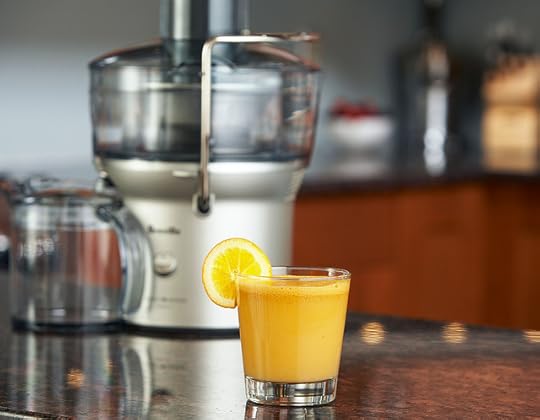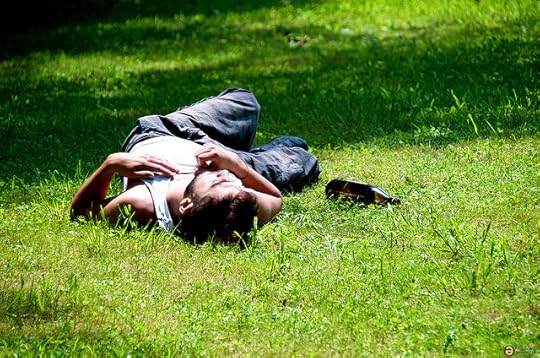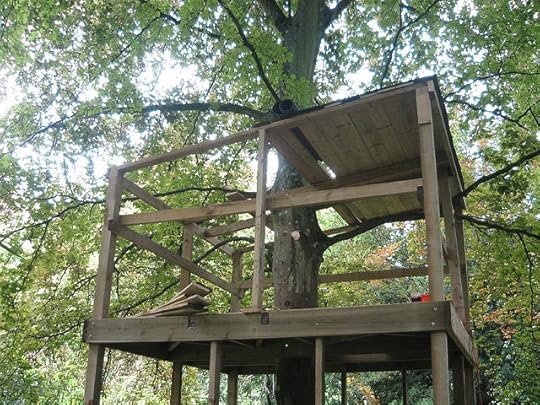Paul Garrigan's Blog, page 20
May 9, 2014
5 Bullshit Ideas That Prevented Me from Breaking Free of Alcohol
There were certain ideas that I picked up during my years of trying to break free of my alcohol addiction that I’ve since concluded are bullshit. These beliefs were more than just wrong, they actually kept me from making progress – that’s why I’m referring to them as bullshit.
One man’s (or woman’s) bullshit is another man’s caviar, and I do accept that just because an idea didn’t work for me, it doesn’t mean it won’t work for other people. In fact, I’ve seen these same beliefs work wonders in the lives of other people – maybe I’m just allergic.
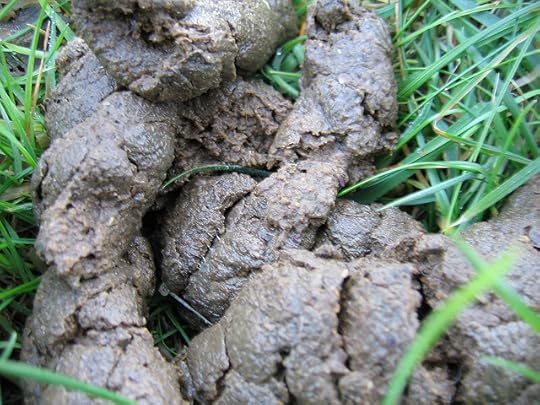
I don’t mean to offend anyone by calling these ideas bullshit (I don’t need other people to be wrong for me to be right), but I’m just sharing my experience for others out there who may be also suffering due to these questionable beliefs.
So here are the 5 bullshit ideas that prevented me from giving up alcohol for good:
1. Getting Sober Needs to be Complicated
Giving up alcohol was a struggle for as long as I made it one. I filled my head with theories of addiction, the latest scientific research, and the philosophies of recovery. I read hundreds of books on the topic, and I spent countless hours online looking for answers. Even when I was doing my nursing training, I spent far more time researching my alcoholism than I did the stuff I was supposed to be studying.
None of the information I picked up in my search for answers played any real part in my eventual escape from alcohol, it just made everything more complicated than it needed to be. In the end, a Thai monk suggested that I used alcohol as a tool to help me cope with life, and if I found a better tool, I wouldn’t need to drink. He made no mention of an incurable disease, neurological changes to my brain, or about my addictive personality. His theory sounded way too simple to be true, but in my case at least, it turned out to be exactly right.
2. You are an Alcoholic
I learned to refer to myself as an alcoholic at my first rehab, and I embraced this label like a drowning man would a lifebuoy. It became my identity, and I began to use it as an excuse for all my bad behavior (of course I’m drinking, I’m an alcoholic). The alcoholic label turned out to be incredibly disempowering, and it meant that I always felt like a bit of a victim.
I recently came across a quote by Scott Kiloby in his book Natural Rest from Addiction (I plan to review this soon), and I think he gives an excellent description of what can happen when we become attached to the alcoholic identity:
“Identifying heavily with mental labels can create the “mentality of sickness” where we feel trapped in a conceptual box as a “sick person.” These labels set us apart from society. When we insist on these labels, we’re asking society to treat us as damaged goods or second-class citizens…Identifying with labels such as “addict” and “recovering addict” can set us apart from our families and friends, making us feel special and different. This only strengthens self-centered thinking.”
In order for me to end my addiction, I not only had to give up alcohol but also the alcoholic identity.
3. Alcoholism is an Incurable Disease
If treating alcoholism like a disease helps some people that’s reasonable enough, but it did help me at all. I fear that the medicalization of addiction is just making things worse for at least some of us. I needed to start thinking less as a patient with a disease and more as a person who had been making bad choices.
4. You Can Only Give up Alcohol One Day at a Time
Taking life one day at a time makes a ton of sense, but when it came to alcohol, I had to kick that shit out of my life for good. I didn’t want to be still fighting my addiction decades after I’d stopped drinking, I stayed sober like this for two years, and I just never felt free during that time. The ‘one day at a time’ approach meant I remain trapped in a type of ‘will I/won’t I’ thinking. I had to remove the relapse option completely from my life in order to enjoy real freedom.
5. There is a New Cure for Alcoholism
The dream of being able to drink like a gentleman prevented me from committing to this new way of living. I kept on hearing about new scientific discoveries, and possible cures, and more than once I used such news as an excuse to relapse. It wasn’t until I realized that there is no such a thing as alcoholism (at least as far as I’m concerned) that I lost interest in a cure.
I drank because it seemed to offer peace of mind, and I stopped by finding a much more effective way of enjoying inner well-being. I’ve no longer any interest in alcohol and that is the only cure I care about. If there was a 100 per cent guaranteed way for me to drink like a normal person discovered tomorrow, I’d have no interest in it.
May 8, 2014
Alcoholism is Not a Justification for Behaving Like a Dick
For many years, I used alcoholism as and excuse for behaving like a dick . It meant that no matter how badly I behaved, I always felt like the victim. This not only happened when I was drinking, I used the same logic to justify my asshole ways as a ‘recovering alcoholic’. In this video and podcast, I discuss why I no longer believe that being an alcoholic is justification for behaving like a dick. Press play to watch the video, and you’ll find the podcast edition of this episode below:
Press play to listen to the podcast:
May 7, 2014
How to Escape the Feeling of Emptiness After You Quit Addiction
I understand why even those of us who have suffered terribly as a result of addiction can still find sober living a struggle. I always experienced significant mental and physical improvements every time I quit alcohol, but this wouldn’t be enough to keep my motivated long-term. My life just felt empty when I wasn’t drinking, and eventually this feeling would trigger my ‘fuck-it’ button.
The Itch You Shouldn’t Scratch
A feeling of emptiness wasn’t ever going to kill me, but it did could make any reason I had for staying sober appear trivial. When life feels like it lacks meaning and purpose, why bother fighting for it? What was the point in making plans? My dreams and goals felt worthless when looked at from this vantage point. This itch in my brain was the opposite of the golden-touch – it meant everything I touched turned to shit.
I’d do my best to try to ease this empty feeling without drinking. I’d get spiritual, exercise like a maniac, get excited about new hobbies, and read every motivational book I could get my hands on. This could temporarily soothe the itch, but it would always return as soon as I stopped being busy.
When I was drinking, the feeling of emptiness never bothered me much. My life would revolve around alcohol, and I’d create enough trouble to keep my mind constantly in survival mode.
The Empty Feeling is a Case of Mistaken Identity
It took me years to realize that it wasn’t the emptiness that made my life so unbearable, but my need to escape this feeling. I’d never spent any time analyzing what I was trying to escape from – it just never occurred to me to do this. There would be the sense of something being wrong, and this would be enough to have me running for cover.
I now see that this feeling of emptiness was a just a phantom. I just didn’t feel comfortable in my own skin, so I needed to stay distracted – alcohol was a fantastic distraction. If my mind became quiet, I’d interpret this as something being wrong, and I’d be off trying to fix myself. Even after I quit alcohol for good, I still continued to struggle against this feeling of emptiness, and it would lead to episodes of depression.
The turning point came when instead of just reacting to the emptiness by eating junk or wasting money on stuff I didn’t need, I decided to just sit with it. I observed where the feeling was coming from without making any attempt to fix it. There wasn’t much to it at all. I could feel a slight flutter in my stomach, and there was a definite flatness to my mood, but there was nothing unpleasant about the experience. I must have spent less than fifteen minutes like this before the empty feeling disappeared. I couldn’t believe that this was the horrible monster I’d been trying to escape for all those years.
News: I contributed recently to an in-depth article featuring different opinions about addiction called What the Top Recovery Blogs Say about Addiction
May 5, 2014
Is the Addiction Rehab Industry a Friend or Foe?
I am not going to waste your time by floating a conspiracy theory about how the rehab industry is deliberately failing clients in order to ensure plenty of repeat custom. It is a business, and there are almost certainly people involved in it for the wrong reasons, but no rehab could survive if it was being purposefully ineffective. Rehab has helped lots of people create a better life, but there are some potential dangers with this approach.
There is money to be made in treating addiction, but if recovering professionals are providing an effective solution, they do deserve to get paid. The problem is the success-rate for all of these paid-treatments options is pretty depressing. It is expected that 60 per cent of people who leave rehab will relapse within a year. Rehab is by no stretch of the imagination any type of wonder cure, so is this industry a friend or a foe to the person caught up in addiction?
The Addiction Recovery Industry as a Friend
I’m sure I did benefit from the time spent in my second rehab (not so much my first). I’d made a complete mess due to my enthusiasm for alcohol, and I felt in way over my head. I just couldn’t function, and I ended up living on the streets of London. If I’d had the energy, I would have happily jumped off a bridge. That rehab probably saved me, so I’ll always feel grateful for it.
I got help that time from an organization called the Alcohol Recovery Project, I entered one of their facilities, stayed there for a year. I began to recover. I didn’t pay for anything, it was all a gift from the government – they even gave me a council flat when I left (I foolishly gave it up later), and a one year travel-pass so I could go to AA meetings. One of the therapists encouraged me to do some voluntary work and that this transformed my life far more effectively than any group therapy – I would never have guessed spending more time thinking about other people would have such a powerful effect on me.
Looking back, I suspect that much of the stuff I did in rehab was just ‘busy-work’, and I can’t think of much that was of practical value to my life afterwards. I only seem to be able to learn by dealing with stuff in real life. I suppose having things to do kept me busy and distracted, but the most helpful part of staying in this type of facility was it gave me enough space to sort myself out. Going to rehab also boosted my motivation initially because it involved making such a grand gesture to change my life.
The Addiction Recovery Industry as a Foe
I learned how to be an alcoholic when I entered my first rehab at age nineteen. The therapist told me I had an incurable disease and that relapse was a normal part of recovery. I was an alcoholic, and I’d be an alcoholic for the rest of my life – even if I stopped drinking. When I’m in a cynical mood, I say he taught me to become the ideal candidate for his services.
After rehab, I started to feel like a victim and I began to blame all of my difficulties and bad behavior on my alcoholism. If I woke up in a bad mood, it was because of my alcoholism. If I treated other people like shit, it was because I was a poor unfortunate alcoholic. No matter how big the mess I created, I always felt like the victim.
Later I met other therapists who were less pushy about the disease idea, but the emphasis continued to be there was something wrong with me and not that I was doing something wrong. This meant I never saw anything odd about feeling desperate to stop while continuing to abuse alcohol – of course I’m drinking, I’m an alcoholic.
The recovery industry thrives because it is always going to appear easier for people to try to give up an addiction than it is to just give up. It can be fun to keep building sand castles and kicking them down again. I finally broke free of alcoholism by letting go of the alcoholic identity and by removing the relapse option from my life. I stopped believing there was something wrong me and instead started focusing on what I was doing wrong. It all became much easier after that.
I would never tell somebody struggling with addiction not to go to rehab. I just think it is important to keep in mind the pros and cons with this type of solution. One of the common aims of rehab is to teach you how to be a ‘recovering alcoholic’, but some of us need to break free of the alcoholic identity completely. Of course, there is no reason you can’t take what you need from this type of program and leave the rest behind.
May 2, 2014
4 Pillars of Successful Sober Living
I’ve needed to jettison plenty more useless baggage since given up alcohol in 2006. I like to think of my life as a journey, and that getting rid of any bullshit just lightens my load. I’ve changed so much in the last few years – my beliefs have been given a radical overhaul, and I’ve developed a far simpler relationship with the universe. Despite all these changes, there are four pillars of my sober life that have remained constant including:
Mindfulness
There is now a whole industry based around mindfulness training, but this is an incredibly simple ability that almost all humans will have already engaged in at one time or the other. Mindfulness occurs naturally when we are fully engaged in a task – it can also be trigged by something as simple as a sunset. There is nothing mysterious about it. All mindfulness means is being fully present in the moment without the usual mental chatter spoiling everything.
The reason it took me so long to fall free of addiction was that I trusted my thoughts. I’d no problem dismissing the nonsense in other people’s heads, but I didn’t apply the same skepticism to my own bullshit. I mistakenly believed I was my thoughts, so it seemed ridiculous to question them.
Mindfulness allowed me see how most of my internal chatter would often be like the ramblings of a demented imbecile, and it would be incredibly dangerous to just automatically believe everything said.
Being mindful meant that I could see through the thinking that supported my alcoholism. The big monster that had terrorized me for years turned out to be a figment of my imagination. Cravings were just like clouds passing through my brain, and they only became a problem when I latched onto them.
It took further pain after I broke free of alcohol, but it soon became obvious that all my worries were just figments of my imagination too – it was all just shit my brain likes to say.
Self-Compassion
I used to hate myself for being so self-obsessed, and it is only in the last year that I’ve come to understand that the hating myself and self-obsession are related. I’d always assumed my self-obsession was a type of narcissism, even though I could sometimes barely stand to look at myself in the mirror. It turns out my obsession with ‘me, me, me’ had nothing to do with self-love, I hated myself so much that I could barely give myself a moments peace.
If I’d treated other people as badly as I’ve treated myself, I’d be dead now or in jail. All of that constant criticism and belittling meant that I was my own worst enemy. I saw this inner-voice as a coach who wanted me to do better in life, but in reality it acted like a vicious bully who was only happy when I was suffering. I needed to shut that asshole up, and the way I did this was by developing self-compassion.
I’ve been using loving-kindness meditation as a tool for developing self-compassion, and the results have been spectacular. The most amazing thing is that by showing myself some compassion, I’ve become far less self-absorbed. I really care about other people now, and I’m less afraid about opening my heart.
Trust
Getting sober is always going to involve a leap of faith. It is a step into the unknown, and there are no guarantees. There have been so many times in this new life when it seemed certain that I was heading towards disaster, and it is only my trust in the universe that has kept me together.
I’m not claiming the universe is just waiting to shower me with goodies, but I have strong faith that the tide always comes back. If I keep pushing through the bad stuff, I’ll eventually find myself back in the light. I’ve seen this happen so many times now that this trust is well-earned.
Humility
I spent a brief period of my life homeless and begging on the streets of London. I’d had a bit of a breakdown due my alcohol-enthusiasm, and I lost everything. Despite my lowly state, I still felt able to look down upon everyone else. I used arrogance to protect my ego for years, and it kept me trapped in a world of bullshit suffering.
I needed to become humbled enough so I see through all the lies I’d been telling myself. I’ve needed to remain vigilant because as soon as I latch onto any beliefs or opinions as facts, I begin to return to that ego-governed world of suffering. I’ve developed the humility to live with uncertainty because thinking I have all the answers is way too painful.
April 26, 2014
My Wonderfully Nonscientific Approach to Addiction Recovery
Science played no part in my final recovery from addiction. Instead I got help at a Buddhist temple where the monks told me I didn’t have to be an alcoholic any longer. They offered a simple approach that would be considered woo by the more scientifically-minded because it involved making a sacred vow, drinking secret herbal medicine, and vomiting into a gutter while the monks applauded. I doubt this approach would even be legal in the west, but it worked for me, and I’ve got a wonderful life now.
The Scientific Approach to Addiction Recovery
I struggled with my alcohol problem for almost two decades before I gave up the alcoholic identity. I saw the doctors, took the medicines, spoke to the therapists, went to the meetings, and found a home-away-from-home in the rehabs. I learned that I had a special type of brain disease that I could never recover from – I was taught how to see myself as a victim who at best could aspire to be a ‘recovering alcoholic’ because there was no cure – although the science journalists kept promising that it was just around the corner. I also learned that relapse was a normal part of my condition, and this offered me a wonderful ‘get out of jail free’ card that I used liberally.
I don’t see any evidence that science/medicine has so far proven effective at treating addiction, and I worry that the medicalization of the problem is making things much worse in some ways. In my case, I felt brainwashed into believing there was something fundamentally wrong with me, and it made me feel powerless and at the mercy of the experts. Sure, medical supervision may be needed in the case of severe withdrawal symptoms – although I can’t comment much on this because I usually managed to rattle along by myself.
I write regularly about addiction, and it seems like every couple of weeks I come across a story touting a ‘new medical cure’. It’s great that scientists are interested enough to research the topic, but the effectiveness of their contribution to a solution is often grossly exaggerated. Of course, this isn’t just the fault of science journalism – there are plenty of charlatans out there who like to claim the ‘approved by science’ label. To be honest, when I hear about this type of scientific endorsement, my gut response is to think ‘here we go again’. It seems to me that the popularity of the medicalized-approach to addiction treatment is faith in promissory-science – faith that the guys in the lab-coats are going to have it all figured out eventually.
I don’t view my previous alcohol-enthusiasm as a medical problem because it didn’t require a medical solution. I trained and worked as a nurse, so I do have respect for modern medicine, but I also know it can be a bit hit-and-miss – it is not uncommon for treatments to make conditions worse or trigger new symptoms. There are limits to what medicine can treat, but I’ll be happy to eat my words if they do discover an effective remedy. I just won’t hold my breath.
Blasphemy
Questioning science has become a modern form of blasphemy. The rise of scientism means that any skepticism directed towards this approach to learning about the world can easily earn the dreaded label of anti-science – a sort of ‘you are either with us or against us’ attitude. I actually love science, but I see it as a tool and not the only way of gaining knowledge – I learn far more from interacting with my environment and listening to my body.
I stopped being an alcoholic by letting go of this identity. If alcoholism is a type of medical condition, it’s was a pretty odd one. How many diabetics can be cured by just deciding not to be this way anymore? Don’t get me wrong – if a scientific approach to addiction helps some people that is great news. It just didn’t work for me.
April 24, 2014
You Do Not Need to be an Alcoholic for the Rest of Your Life
I once believed that there was no cure for alcoholism – even if I managed to stop drinking, I’d still be a recovering alcoholic. In this video I discuss the importance of letting go of the alcoholic identity in order to be truly free. Press play to watch the video, and you’ll find the podcast of this episode below.
Press play to listen to the podcast:
April 22, 2014
Why Am I Doing Another Juice Fast?
I wouldn’t care so much about being overweight if it wasn’t for how much it negatively impacts my energy levels and mental focus. It means I get less done, and my motivation for work and hobbies declines significantly. I’ve been trying to gain control of my weight for the last five years, and it is beginning to remind me a little too much of my battle with alcohol addiction. I don’t have any problem losing the weight (I’m up and down between 86kg / 190 pounds and 75kg/165 pounds like a yo-yo) but it is keeping it off that is the problem.
Final Attempt to Bring My Weight under Control
The problem with all my attempts to keep the weight off so far is that it has required fighting my food cravings. This type of battle requires willpower, and I this is not something I can depend on long-term to keep me on the right path. As soon as my life becomes challenging, I tend to turn to food for comfort. I always mean for it to be just a blip in my good behavior but before I know it I’m back to being a lard-ass.
I struggled for almost two decades with my alcohol addiction until I finally had the good sense to stop fighting. I was like a 10-stone weakling trying to take on a UFC champion – I kept having my arse handed to me on a plate. I stopped ‘trying’ to control my drinking and instead threw in the towel. I gave up my alcoholic identity, and it all became incredibly easy after that. This meant that I didn’t so much break free of my addiction as fall out of it by becoming a person who doesn’t drink.
My battle with food is just a rerun of the game I was playing with alcohol – the only way I can win is to stop playing. It’s not as simple as dealing with alcoholism because I can’t just give up eating, but I can become somebody who doesn’t use food like a junkie. I can do this by mindfully acknowledging how much better I feel when I’m eating sensibly. This means that instead of trying to fight my mind, it cooperates because of the obvious rewards of a healthy diet.
I say that this is my final attempt to bring my weight under control because I’m tired of fighting. It’s a game I’m never going to win, and it just requires too much energy and effort. I’m done with dieting and other approaches that can only bring short-term benefits.
Why Am I Juicing Again?
I’m now on day 11 of a 30 day juice fast. This might seem a bit of an odd thing to be doing given that I’ve just said that I’m done with dieting. I do expect to lose a significant amount of weight due to this fast (I’ve already lost about 5kg), but I know that any weight-loss is only going to be temporary unless I change my approach to food. The real goal of this 30 days of juicing is to reboot my system, and to increase my energy levels and mental clarity – my work has been suffering due to lack of both of these recently. I felt physically and mentally fabulous for about two-months following my last 15 day juice fast, and I’m expecting a repeat performance at the end of this one – I already feel much better and have more energy.
Permanent 18:6 Intermittent Fasting
I’ve tried 5:2 intermittent fasting in the past, but it hasn’t really worked for me – it requires too much of a sacrifice to be sustainable long-term. I do still like the idea of fasting, and this is why at the end of my juice fast, I’m going to start 18:6 fasting. This basically means I can eat every day but only during a six-hour period. If this works to stabilize my weight, I’ll continue with it indefinitely, so it’s not going to be just another fad diet. The monks here in Thailand follow a similar type of daily fasting schedule because they don’t eat after noon, and it doesn’t seem to do them any harm. My approach is going to differ from the monks because my feeding time will probably be between noon and 6pm.
I’m confident that within a few months my body and mind will have adapted to a more sensible approach to diet. I’ll also begin to favor nutritious food naturally as I witness how much better it makes me feel.
April 17, 2014
Letting Go of the Alcoholic Identity to Enjoy Real Freedom
The first time I uttered the words “I am an alcoholic”, I didn’t believe those words. I was a nineteen-year-old who felt coerced into going to his first AA meeting. I said it because I knew I was expected to. I saw it as just a bizarre ritual I’d need to perform in order to win back my girlfriend. I must have said ‘I am an alcoholic’ thousands of times over the next few years until eventually I started to believe it.
Being an Alcoholic Is Hard Work
I grew up with the idea that alcoholics were carefree chaps who were usually too drunk to shoulder any type of responsibility. I did have a natural talent for this role, but it came as a bit of a shock to discover how much work was involved. Being an alcoholic is a way of life with its own unique system of beliefs and terminology. It’s also a bit like the Catholic Church in that once you have been baptized as an alcoholic, you are expected to carry this label around with you for the rest of your life – even if you’re not drinking.
I became addicted to the struggle of being an alcoholic. It became my identity, and I’d no idea what I would be without it. My life revolved around drinking – when I wasn’t a practicing alcoholic, I’d switch to being a recovering one. I heard guys who were twenty years sober and still talked about their struggle with alcohol – it sometimes sounded as if one wrong word could set them scurrying back to the pub. I was an alcoholic who valiantly struggled to beat his addiction, and as long as I believed that, I could never be free.
Hi, My Name is Paul, and I’m Addicted to Being an Alcoholic
In the end my problem wasn’t so much my physical addiction to alcohol, but my addiction to the alcoholic identity. I’d quit hundreds of time. My withdrawal symptoms became more severe as the years went by, but they only lasted a few days. The real difficulty was letting go of the struggle. My inability to do this made staying sober hard because this ‘life and death’ fight to sustain my new life consumed way too much energy. Of course, I didn’t then realize that I was addicted to being an alcoholic because this identity was as much a part of me then as my eyebrows.
Giving up alcohol felt like a huge struggle because I made it one. Once I was able to let go of the alcoholic identity, it all became so much easier. It meant there was now a vacancy in my mind for a new identity, and I went with ‘sober Paul’.
March 29, 2014
The Day in the Treehouse When I Closed My Heart and Embraced Shame
I must have been seven years of age when I first experienced deep shame. A group of us were playing soldiers in the woods, and it was great fun despite the wet and cold. I’d only started hanging around with these kids a few weeks before, most of them were older, so I still felt like a bit of an outsider. One of the gang was called Mark. He was the same age as me, but he got on my nerves because of his loud and aggressive nature.
Mark decided to wrestle me to the ground. It was autumn, so I ended up face-down in heap of wet leaves. This was typical shit for him, and he expected his victims to just take it as a joke. I was a puny kid, but I felt angry, and I started throwing punches at him. I didn’t even know how to form a fist, but my anger scared him. The other guys stepped in to break up the fight.
Living as an Outcast
I just wanted to go home, but the other kids insisted that Mark and I apologize to each other and shake hands. I did it reluctantly because I knew it wouldn’t change anything. I could see that my assailant still thought he was in the right and that I’d been at fault for losing my temper over a joke. The rest of the group could see that there was still a lot of ill-will between the two of us, and they decided to make it their mission to repair the friendship.
We’d already created a clubhouse for the group in the forest by cutting out a cave inside of some enormous blackberry bushes. We’d been working on it for a few days, and it now had a real homely feel to it. We had a small comic-book library in there, and we’d added our own bean bags using cloth bags stuffed with leaves. We also stored boxes of staples in the hut that had been stolen from a nearby factory – we fired these staples with elastic bands when playing war.
It was decided that Mark and I would be banned from the clubhouse until we convincingly became friends again. In the meantime, we were told to build our own treehouse. It felt a bit unfair, but I agreed to the plan. I was sort of expecting Mark to storm off in a huff, but he surprised me by agreeing to it as well. There was a tree nearby with easy-to-reach thick branches that we were going to use for a lookout tower, but we were now going to build our ‘outcast hut’ there instead. The other guys went of to collect collect some wood and other building materials, so the two of us could just stay together and start building.
Mark and I managed to create something that sort of resembled a treehouse despite the fact that we were completely ignoring each other. We were probably the two least skilled builders in the group, but luckily we also had very low standards for workmanship. Once the experts in the group were satisfied that the floor was secure enough to hold our weight, myself and Mark were ordered to get in our hut and stay there until further instructions.
Opening My Heart in a Treehouse
It’s hard to ignore somebody when you are sitting facing them with your knees touching. Mark broke the ice by laughing, and I started to laugh too. It was a funny situation. Something shifted inside of me, and I looked at Mark and felt complete love for him. There was nothing sexual about it, but I just felt incredibly close to him. I understood that he was just like me. I just somehow knew that underneath all the loud talk and bullying, we shared the same hopes and fears.
We must have stayed in our hut for a couple of hours just talking and loving each other’s company. The feeling of my heart being so open to another human felt completely familiar, and I understood that it was my natural state. This special connection was broken when one of the older boys decided that we were acting “too gay”. Everyone started laughing and making jokes about us. I didn’t even know what ‘gay’ meant, but I felt deep shame, and I decided that it was not okay to open my heart like that to other people.
The day at the treehouse stands out as a milestone on my way to a closed heart. I cared a lot about people as a kid, but it was thousands of events like this that convinced me that it was not safe to wear my heart on my sleeve. I suspect the same process happens to most of us. We learn to protect our heart by closing it, and we develop an inner-critic to prevent us from doing anything that might be viewed as weak and naive. This protection leaves us feeling empty inside, and we can spend the rest of our life trying to fix this empty feeling.
Paul Garrigan's Blog
- Paul Garrigan's profile
- 3 followers


